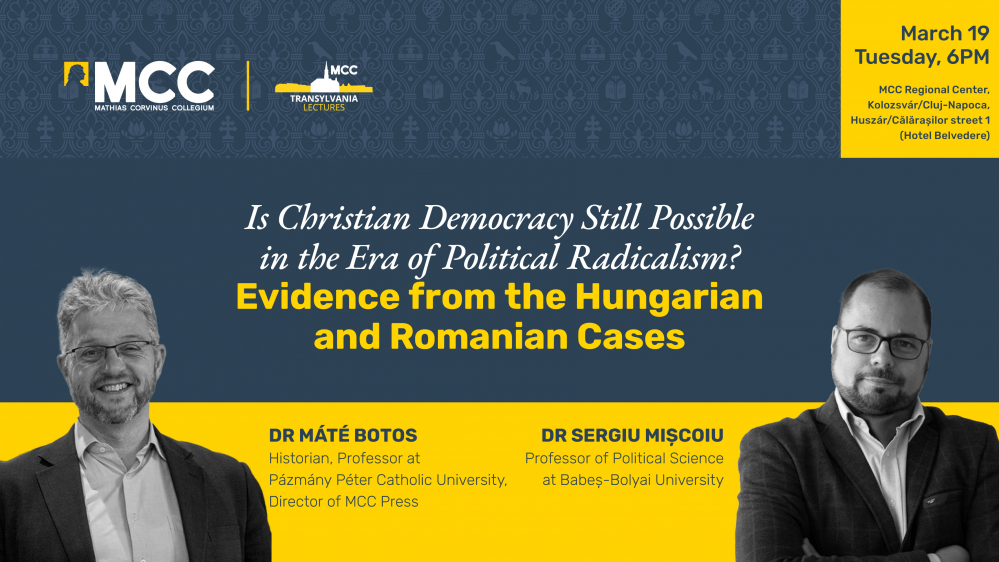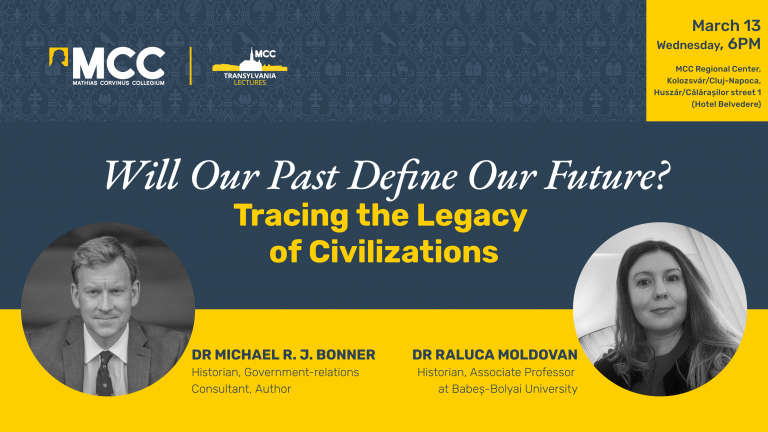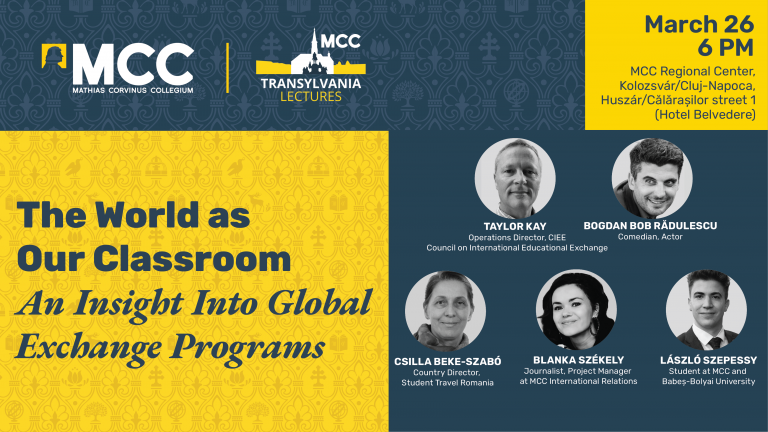Why has Christian democracy become a stable political force in Hungary, while the percentage of religiosity is relatively low? Meanwhile, in Romania, one of the most religious countries in Europe, why does it not carry so much political weight? Is it possible that the increase in popularity of a political ideology is inversely proportional to its religiosity?
At our next event in the Transylvania Lectures series, our invited speakers, Dr Sergiu Mișcoiu and Dr Máté Botos, will explore the role of our religious, national and cultural specificities in the shaping of political systems. The discussion will take an in-depth look at and discuss the future of Christian democracy at a time when Christianity is more socially rejected than ever and democracy is more under attack than at any time since the 1930s. The experts will try to answer the question of whether a renewal of the ideology is possible in the 21st century.
Dr Sergiu Mișcoiu is a Historian and Professor of Political Science at the Faculty of European Studies, Babeș-Bolyai University where he serves as a Director of the Centre for International Cooperation and as Director of the Centre for African Studies. He is an associate professor at the universities of Créteil (France), Szeged (Hungary), and Cheikh Anta Diop Dakar (Senegal), and has been leading five major international research projects. His main research interests are populism, discourse theory, deliberation, political conflicts, French politics, transition in Central-Eastern Europe and Francophone Africa.
Dr. Máté Botos is an archaeologist, historian, former Dean of the Faculty of Humanities and Social Sciences of Pázmány Péter Catholic University, and chairs the Department of Political Science. He is also head of the Comparative Civilization History Research Group and the College „Labor et Otium” at PPCU. Since 2020 he is the head of the publishing house of Mathias Corvinus Collegium (MCC Press). His main research interests are intellectual history, especially the philosophy of history of John Lukacs, as well as economic and social history.
For more information follow our events on Facebook.


